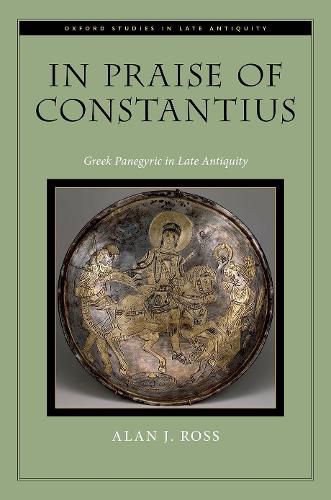Readings Newsletter
Become a Readings Member to make your shopping experience even easier.
Sign in or sign up for free!
You’re not far away from qualifying for FREE standard shipping within Australia
You’ve qualified for FREE standard shipping within Australia
The cart is loading…






In Praise of Constantius offers historical and literary analysis of eight Greek panegyrics composed by Libanius, Themistius, and Julian in the 340s and 350s CE, and addressed to Constantius II and his wife, the empress Eusebia. Its central concerns are the role that the composition, performance, and dissemination of imperial panegyric played in establishing the careers of the three most prominent Greek pagans of the fourth century; and their development of Greek epideictic literature in an era beyond the Second Sophistic.
The book deftly exposes the rich intertextual dynamics between these eight speeches, other contemporary works, and canonical works of Greek political literature. It revises standard interpretations of panegyric's communicative function, and treats the orator less as a vector for others' messaging and instead as an active agent in political discourse in pursuit of his own ends. The volume substantially re-writes the early careers of each of its subjects, emphasizing their precarity and the utilization of performed paideia in managing moments of personal and political upheaval.
$9.00 standard shipping within Australia
FREE standard shipping within Australia for orders over $100.00
Express & International shipping calculated at checkout
In Praise of Constantius offers historical and literary analysis of eight Greek panegyrics composed by Libanius, Themistius, and Julian in the 340s and 350s CE, and addressed to Constantius II and his wife, the empress Eusebia. Its central concerns are the role that the composition, performance, and dissemination of imperial panegyric played in establishing the careers of the three most prominent Greek pagans of the fourth century; and their development of Greek epideictic literature in an era beyond the Second Sophistic.
The book deftly exposes the rich intertextual dynamics between these eight speeches, other contemporary works, and canonical works of Greek political literature. It revises standard interpretations of panegyric's communicative function, and treats the orator less as a vector for others' messaging and instead as an active agent in political discourse in pursuit of his own ends. The volume substantially re-writes the early careers of each of its subjects, emphasizing their precarity and the utilization of performed paideia in managing moments of personal and political upheaval.